This website uses cookies so that we can provide you with the best user experience possible. Cookie information is stored in your browser and performs functions such as recognising you when you return to our website and helping our team to understand which sections of the website you find most interesting and useful.
12 female-owned drinks brands to seek out and sip
In celebration of International Women’s Day today, we’ve rounded up a dozen dynamic drinks brands, from wine and beer to whisky, that are owned and run by women.
Double Dutch
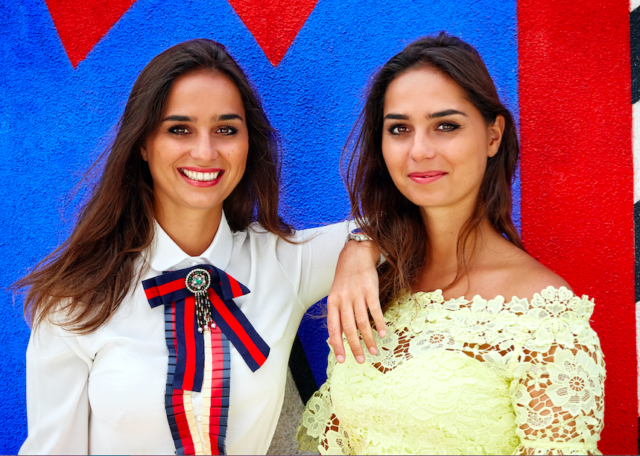
Dutch twins Joyce and Raissa de Haas founded premium mixer brand Double Dutch in 2015 after securing an initial investment from UCL to develop their first two flavours: Cucumber & Watermelon, and Pomegranate & Basil. Today the twins sell 750,000 mixers a month from a 10-strong range in 26 global markets.
Designed for high-end spirits and cocktails, among the expressions in the range are: Cranberry & Ginger, Skinny Tonic Water, Soda Water and Ginger Beer. The mixers are stocked at bars and restaurants across the UK and are also available at Waitrose, Ocado and Amazon. The green-minded sisters are on a mission to be carbon neutral and recently opened new production plants in South Africa and the Netherlands.
Last June the Heineken family acquired a minority stake in Double Dutch, providing new capital for the brand to grow its presence in international markets. “We are delighted to have the Heineken family on board and it’s an honour that they recognise the potential of our business. As well as being hugely exciting commercially, the relationship is a perfect cultural fit – both businesses are Dutch, family-owned and female-driven – we couldn’t be happier,” Raissa said at the time of the announcement.
She recently revealed to db that it took a while for Double Dutch to be taken seriously as a brand: “Being young and female, people didn’t take us as seriously at first, but winning industry awards and endorsements really helped. The drinks industry is still male dominated, but things are getting better, and there are a lot more support programmes for women in the industry now. We try to look at it from a positive point of view and use the fact that we’re women and have a unique story to tell to our advantage – it helps us to stand out.”
Corison Winery
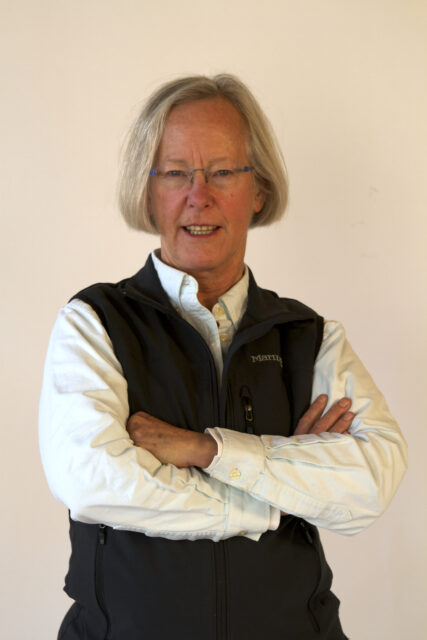
A voice of restraint in a land of loud wines, Cathy Corison has been single-handedly championing elegant, fresh, lower alcohol California Cabernet at her eponymous winery since she launched her own label in 1987.
Born in Riverside, Corison studied biology at Pomona College in Claremont, where she was forced to join the men’s diving team, as a women’s team didn’t exist. Studying oenology at UC Davis in the mid-70s, Corison was told by her professor that she’d struggle getting a winemaker job in Napa because she was a woman. Undeterred, she joined Freemark Abbey as an intern and worked her way up to the role of winemaker, then moved to Chappellet as chief winemaker, where she stayed for a decade.
Having also chalked up stints at Staglin Family Vineyard, York Creek Vineyards and Long Meadow Ranch, today Corison makes two Cabernets – a blend from sites near Rutherford, and a single vineyard Cab from the organically farmed Kronos vineyard next to her winery, which boasts deep, stony alluvial soils.
Uncompromising and exacting in her ‘hands-off’ approach, Corison’s aim is to make terroir-driven “complex wines that walk the fine line between power and elegance” and have “a long and interesting life” ahead of them. She is particularly proud of the 2001 vintage from her Kronos vineyard. “The fruit flavours are bright, natural acidity snappy and the tannins feel like velvet. This was the first vintage that made me realise what my vineyard could do,” she told db.
Ncn’ean
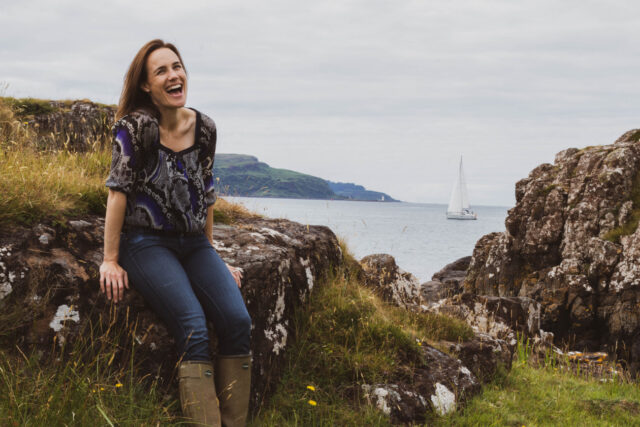
Annabel Thomas upped sticks from London to Scotland to change the way the world thinks about Scotch. Her mission was to create a whisky that could exist in harmony with the planet. After leaving her job in London in 2013, she spent four years raising funds and building the Nc’nean distillery from the ground up on the west coast of Scotland. She’s been distilling since 2017, running the entire operation on renewable energy, and recently launched her first whisky.
Ageing her drops in exBourbon, Sherry and Spanish red wine casks, Thomas worked closely with the late Dr Jim Swan for four years, tweaking recipes and designing the “light, fresh, fruity” whisky style she had in mind from the get-go.
Prior to the release of her first whisky, Thomas launched a Botanical Spirit in 2018, made from the distillery’s make spirit, which is redistilled with a range of botanicals, including juniper, fresh grapefruit, coriander and locally foraged herbs including bog myrtle and heather.
Della Vite
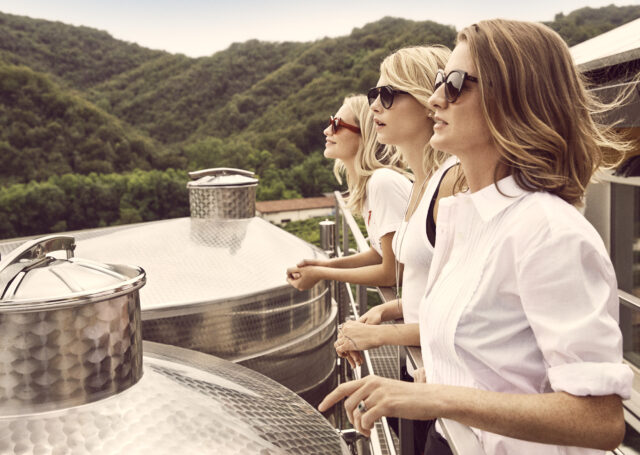
Last September sisters Cara, Poppy and Chloe Delevingne launched premium Prosecco brand Della Vite, which aims to shake up the sparkling wine category while elevating the perception of Prosecco in the process.
The Della Vite range includes a Prosecco Superiore DOCG and a Treviso Prosecco DOC. Both are made in collaboration with Foss Marai. Marking the first joint venture between the three sisters, the inspiration for the project came from the fact that the sisters have marked big and small celebrations with the Italian fizz.
To bring the brand to life the trio partnered with the Biasiotto family, owners of the sustainably focused Foss Marai estate in Valdobbiadene, founded in 1986 by Carlo and Adriana Biasiotto. Della Vita Superiore DOCG is made from hand picked Glera grapes picked from 40-year-old vines in Valdobbiadene, which are fermented with natural yeasts.
Della Vite Treviso Prosecco DOC meanwhile, is said to be “refined and versatile with a clean and bright palate. The bottles feature a handwritten signature logo designed by Poppy. Keen to prove that Prosecco can command punchy prices, Della Vita Superiore DOCG has gone on sale in the UK for £25, while Della Vite Treviso Prosecco DOC has an RRP of £20.
Wild Card Brewery
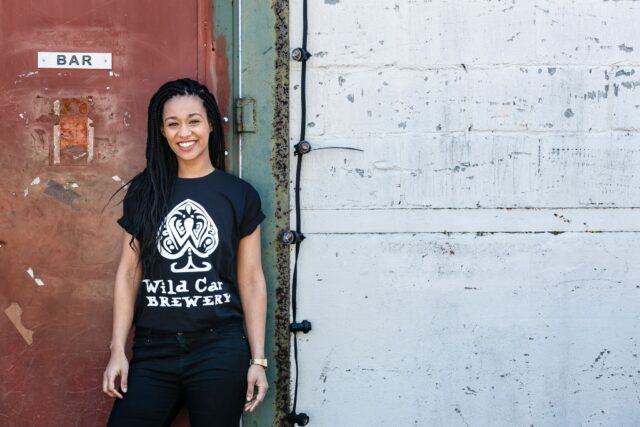
Nottingham-born Jaega Wise started out in chemical engineering, before using her knowledge to brew beer. Having worked as a process technician for General Electric’s water division, she moved down to London to take up a role in international chemical import and trading.
She left in 2012 to set-up Wild Card, which after two years of acting as a “cuckoo brewery” and sharing other brewers’ equipment, acquired its own site in Walthamstow in 2014. Wise’s talents don’t stop there. Having tried her hand at television presenting, she most co-hosted the Channel 5 series The Wine Show, alongside Jancis Robinson MW, Joe Fattorini, Amelia Singer, James Purefoy, Matthew Goode, Matthew Rhys and Stéphane Reynaud.
Wise is also a musician with the band Hell & Hope. She is prominent campaigner against sexism in the beer industry and heads up the London chapter of the International Women’s Collaboration Brew Day. She was appointed director of The Society of Independent Brewers’ South East region in January 2018.
Avallen
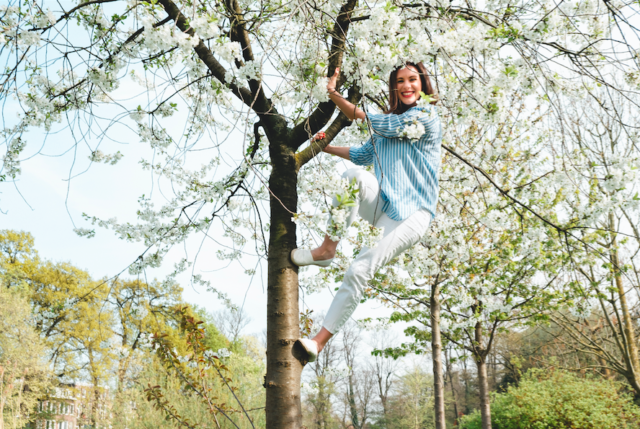
From the vineyards of Burgundy to the orchards of Normandy, via the sugar cane fields of Colombia, Stephanie Jordan has had a colourful career since entering the drinks industry. Since stepping away from her role as Tanqueray’s first female global ambassador in 2017, she has launched a consultancy company, providing her expertise and experience to world-leading drinks companies, including Coca-Cola, Scwheppes, and William Grant & Sons.
In May 2019, Jordan co-founded sustainably focused spirits brand Avallen, with the aim of dragging Calvados out of the dark ages and making apple brandy hip. In her role, she leads the commercial side of the business, driving sales of almost 10,000 bottles in the brand’s first year, spearheading a successful crowdfunding campaign, and helping Avallen secure distribution in nine export markets.
Meaning ‘apple tree’ in old Cornish, Avallen is produced in Normandy. The spirit’s entire production process, from the pesticide-free apple orchards to the labels made from waste apple pulp and lightweight bottle, is done with protecting the planet in mind. A portion of proceeds from each bottle of Avallen sold goes to the Bumble Bee Conservation Trust.
Passionate about breathing life back into the Calvados category, Jordan is one of only two woman on the IDAC board, which controls the regulation, sale, and marketing of the spirit. She also finds time to co-host Positively Charged, a webinar series tackling the topic of sustainability in the drinks industry.
Veronica Ortega
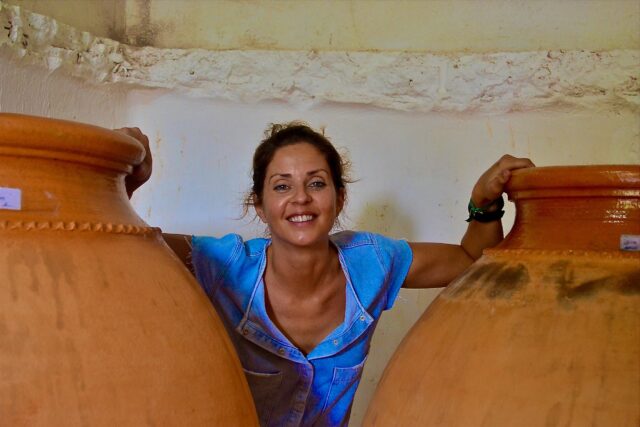
One of the bright lights of Bierzo, having racked up experience at DRC and in Crozes Hermitage in the Rhône, Veronica Ortega now runs her own boutique venture. Originally from Jerez, Ortega was inspired to make wine in Bierzo after meeting pioneers Raul Perez and Ricardo Perez Palacios. Ortega makes three wines: the more entry level Quite (pronounced kee-tay) the high-end Roc, and Cal Blanco – an old vine Godello.
Quite is aged in one third oak, one third stainless steel and one third amphora to lessen the influence of the oak. Roc meanwhile, is made from an 80-year-old schist vineyard in the village of Valtuille de Abajo. Ortega views Mencía as the “Pinot Noir of Spain”, due to its delicacy and sensitivity to terroir. “Most people view Spanish wine as highly concentrated and alcoholic – I want to show that there’s another way. I want to make a Burgundian style of wine,” she told db. Her dream is to return south to make Sherry from her own solera.
Ortega describes her winemaking style as minimal intervention. “I try to work with the best raw material and not force anything. I don’t use yeast or additives, except low doses of sulfur as Mencía is a vulnerable variety. But I work in as natural a way as possible,” she said.
“My aim is to produce a wine of character that reflects the variety of the area and the climate, nothing more. I like wines that speak to you and reflect where they come from. Wines that are lively and elegant, fresh and drinkable.”
Brighton Gin
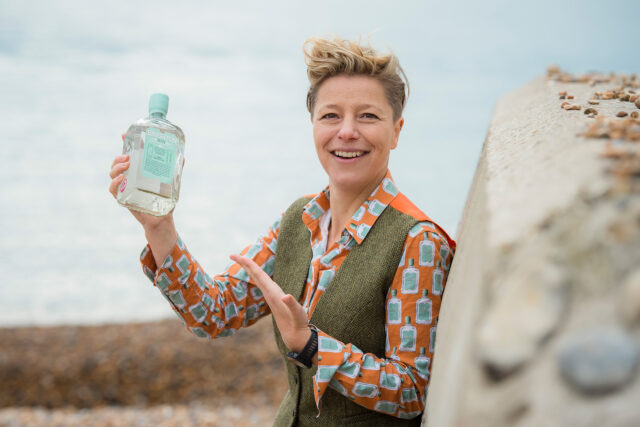
British brand Brighton Gin was founded in 2013 by “Brighton obsessive” Kathy Caton. When not making or drinking gin, Caton can be found on BBC Sussex and Brighton’s community radio station, RadioReverb.
Brighton Gin is distilled by the seaside from 100% organic grain spirit, and ingredients including juniper, fresh orange and lime peel, locally-grown coriander seed and milk thistle. The teal label and wax seal colour is inspired by the hue of the railings along Brighton’s seafront.
The brand created a range of eight colourful bottle designs in celebration of Brighton Pride and donated a portion of the sales to charity.
Lapin Rouillé
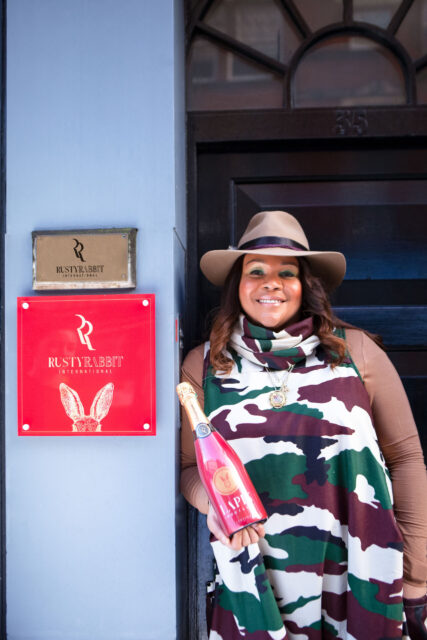
Earlier this year, entrepreneur Nichole Johnson launched a 100% Pinot Meunier Champagne called Lapin Rouillé in the UK. Meaning ‘rusty rabbit’ in French, the Champagne takes its name from Johnson’s drinks distribution company, Rusty Rabbit International.
Lapin Rouillé’s crimson red bottle and rabbit logo make it stand out from the more traditional Champagnes on the market. The pale gold fizz is said to offer aromas of “exotic fruit, red berries, spring flowers and a pinch of sea salt.”
“My aim with Rusty Rabbit is to create and to curate premium drinks brands from around the world and to promote them to the world. The world of wine and liquor is filled with people passionate about what they produce. Shouting about the diversity in the industry is a fantastic way of bringing even more passion, more innovation and more entrepreneurship.
“I am lucky to work with some awesome producers, from whom integrity and provenance are the foundation to their work. With Lapin Rouillé, I am super proud to join those brand owners and offer a world-class product with integrity and a heck of a lot of brand promise,” Johnson said.
The first release of Lapin Rouillé is limited to just over 3,000 bottles. The fizz is on sale via the brand’s website and at luxury department store Harvey Nichols and London retailer Gerry’s.
Nice*
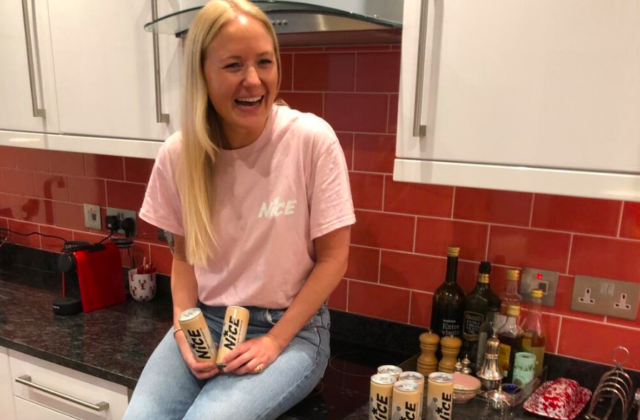
Spotting its potential early, in 2018 fine art graduate Lucy Wright co-founded canned wine brand Nice after clocking on to the popularity of the trend in the US. Spotting a gap in the market in the UK, Wright wanted to create an on the go canned wine brand that would shake up the often fusty wine industry and help make wine more accessible and less intimidating in the process.
Nice launched in March 2019 at 600 Sainsbury’s stores, and took the summer of 2019 by storm at festivals, concerts and outdoor events. With the coronavirus pandemic shuttering the on-trade and the entertainment industry, Wright pivoted to online sales, which now account for nearly 50% of the brand’s total sales. The wines are now on sale at over 1,000 stores and have a nationwide listing at Wagamama.
“Wine is the only category that hasn’t really changed or evolved. It has stayed very stuffy and quite old school. We’ve seen beer and gin be so disrupted, now wine needs shaking up. It needed a bit of a female touch and we could make it more fun and approachable,” Wright told Hustle Hers in a recent interview.
“The overarching concept was that Nice* should be a strong female-led brand. There was a space for a brand that was inclusive to everyone and celebrated women. It’s meant to be light-hearted, fun and inclusive of everyone,” Wright added. The Nice brand includes a French rosé and Sauvignon Blanc, and a Mendoza Malbec.
Lucy’s Wine
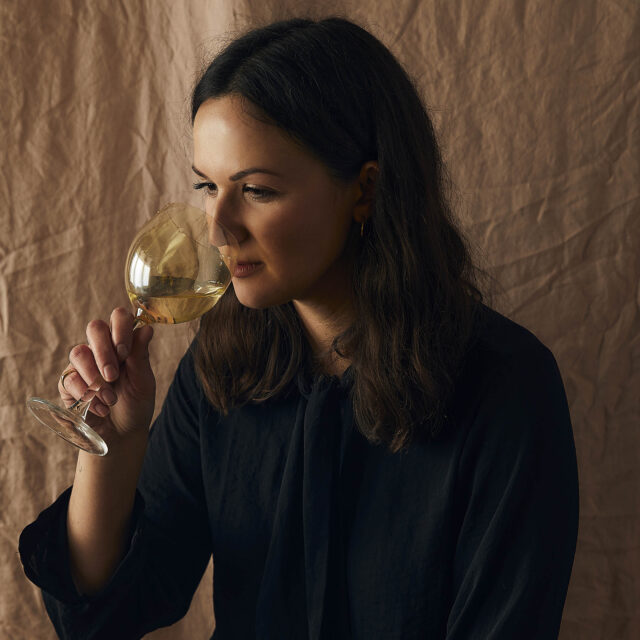
Earlier this year entrepreneur Lucy Dalwadi launched an online shop focused around organic and minimum intervention wines off the back of soaring consumer demand. Lucy’s Wine is targeted at the UK’s growing cohort of organic wine drinkers. The firm was founded by Dalwadi during the pandemic.
The former digital fashion marketer from Buckinghamshire saw a gap in the market for an e-commerce venture that shines a light on sustainable wines.The site is hoping to attract health conscious millennials who are spearheading the surge in interest for organic and minimum intervention wines. Lucy’s Wine is a subscription free e-commerce platform specialising in wine boxes picked by Dalwadi that change each month.
The boxes, which include a starter box, red box and white box, start at £42 and contain between three to six wines. The ‘fancy’ box is priced at £110. Hoping to remove the complex jargon surrounding wine, each box contains a simple description of the wines inside it and a wine glossary.
Among the wines currently on offer are Tillingham Still White 2019 from East Sussex; Vivanterre Rouge 2020 from the French natural wine company co-founded by fashion designer Rosie Assoulin; Davenport Pet Nat 2019 from Kent; Judith Beck Weissburgunder 2019 from Austria’s Burgenland; and Intellego Kedungu Red Blend 2018 from the Swartland.
Laylo
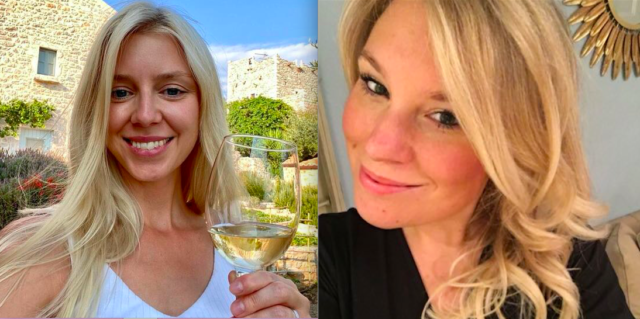
Hoping to elevate the image of boxed wine, earlier this year entrepreneurs and former Naked Wines colleagues Laura Riches and Laura Rosenberger launched chic boxed wine brand Laylo, which shines a light on small independent growers.
Laylo’s debut wine, a smashable Tempranillo, is made by sisters Ruth and Ana de Andres. The design of the box aims to evoke the colourful Iberian tiles in tapas bars. Riches and Rosenberger met in 2016 while working for Naked wines as marketing director and chief operating officer. After leaving the company the pair decided to go into business together with the aim of disrupting the boxed wine category and bringing the wines to a new audience, celebrating wine’s ability to be an everyday luxury.
“It was so exciting to find out that we’d both spotted the same opportunity. We worked together for several years and knew we made a great team, so it made complete sense to bring the idea to life together,” Rosenberger told Drinks Retailing News in a recent interview. With boxed wines proving a lockdown winner, they’ve entered the market at the right time.
Laylo sources small parcels of premium wine with the aim of packaging them in boxes consumers would be proud to display on their kitchen counters. The first 2.25-litre box wine in the range launched in the UK last October and holds the equivalent of three bottles of wine.

